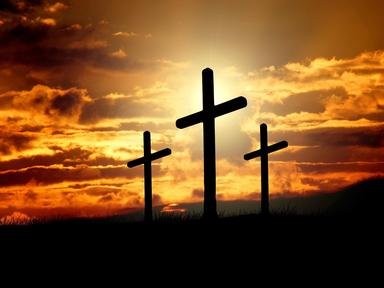Quiz Answer Key and Fun Facts
1. This early Church reformer was born in Bohemia in around 1370 and was burned at the stake for heresy in 1415. Which of these was he?
2. Thomas Cranmer was executed in 1556 on the orders of Queen Mary I of England. What position did Cranmer hold?
3. Saints Sebastian, George and Agnes were all martyred during the last great Roman persecution of Christians in the late third and early fourth centuries. Which Roman Emperor was responsible for the purge?
4. Maximilian Kolbe was canonised in 1982 after sacrificing his life to save that of another man in which Nazi concentration camp?
5. The character of Job is well known for his sufferings in the Bible. His story also appears in Islam, which teaches that he underwent similar afflictions.
6. All of these men were sentenced to death by order of King Henry VIII of England. Which one was convicted of heresy and was canonised by the Catholic Church in recognition of his allegiance to the Pope?
7. St. Mark, the apostle and author of the Gospel, is believed to have been martyred in which Egyptian city?
8. Missionary Thomas Baker was killed and eaten on the island of Viti Levu in 1867. In which island nation did this occur?
9. John Ball was executed in 1381 for his part in the Peasants' Revolt. He was a priest in which religious movement?
10. Thomas Becket was murdered in Canterbury Cathedral as a result of his conflict with which king of England?
Source: Author
rossian
This quiz was reviewed by FunTrivia editor
CellarDoor before going online.
Any errors found in FunTrivia content are routinely corrected through our feedback system.

